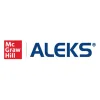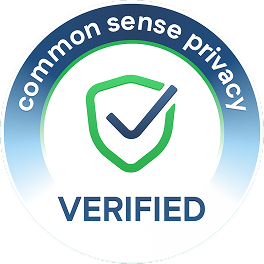Take a look inside 5 images
ALEKS
Pros: Provides tons of data to teachers and students, and competency-based progression is far better than grades.
Cons: Math content is mostly traditional, decontextualized, and dry.
Bottom Line: For kids who crave a traditional mastery-style math learning experience and have good self-regulation skills, this is a great option.
ALEKS is designed to be a self-paced, self-guided, self-contained math learning tool for students to use mostly within a classroom. The developer recommends using its product a minimum of three hours a week in the classroom, alongside other lessons, which feels like a lot. But given the depth, richness, and strong adaptive nature of the tool, it's entirely possible for students to get through an entire course of study on their own with little teacher intervention. This can free the teacher to use class time for small group instruction, one-on-one tutoring, or hands-on supplemental activities while other students work independently.
It's probably a good idea, though, to build in some discovery-based activities and in-depth exploration of real-world applications to promote and maintain student interest in math, because the content itself is about as dry as it gets. This is all about skill building, not invoking a sense of wonder or empowerment with and in the world of mathematics.
After taking an initial assessment to gauge their competency level, students are presented with a pie chart of competency, a timeline of content to master, and a number of ways to dive into that content. Once they select a subject, they're given a fairly typical textbook-style lesson, with written explanations and vocabulary, worked example problems, and then a series of practice questions. ALEKS gives feedback on what students are doing well and struggling with along the way, and it either speeds or slows progression as it measures successful work. As kids get through lessons, sectors of their competency pie grow to reflect their emerging skill.
Teachers get this data, too, at the individual and class levels, on a very robust and easy-to-navigate dashboard. They can view progression by assignment, topic, and state standard, as well as filter students by class and numerous other features. From this data, teachers can use built-in curriculum resources to target individual kids or groups with in-class activities to support learning.
In a lot of ways, ALEKS is the best possible iteration of textbook-style learning in the 21st century. It's an interactive book that knows exactly where kids are and what they're struggling with, and that's great. Decades of education research show that when kids work within their zone of proximal development, they're far more likely to succeed, and ALEKS keeps them there at all times.
However, the way the content is presented still reinforces the decontextualized "when am I ever gonna use this" notion of mathematics. There are few opportunities to use skills in real-world contexts or to explore big ideas or, for that matter, any rich conceptual exploration. For independent, already curious learners, ALEKS will efficiently give them the skills they need to pursue these deeper explorations, but for many kids, it can be a dangerous curiosity-killer -- a boring use of three hours a week in front of a computer screen.














